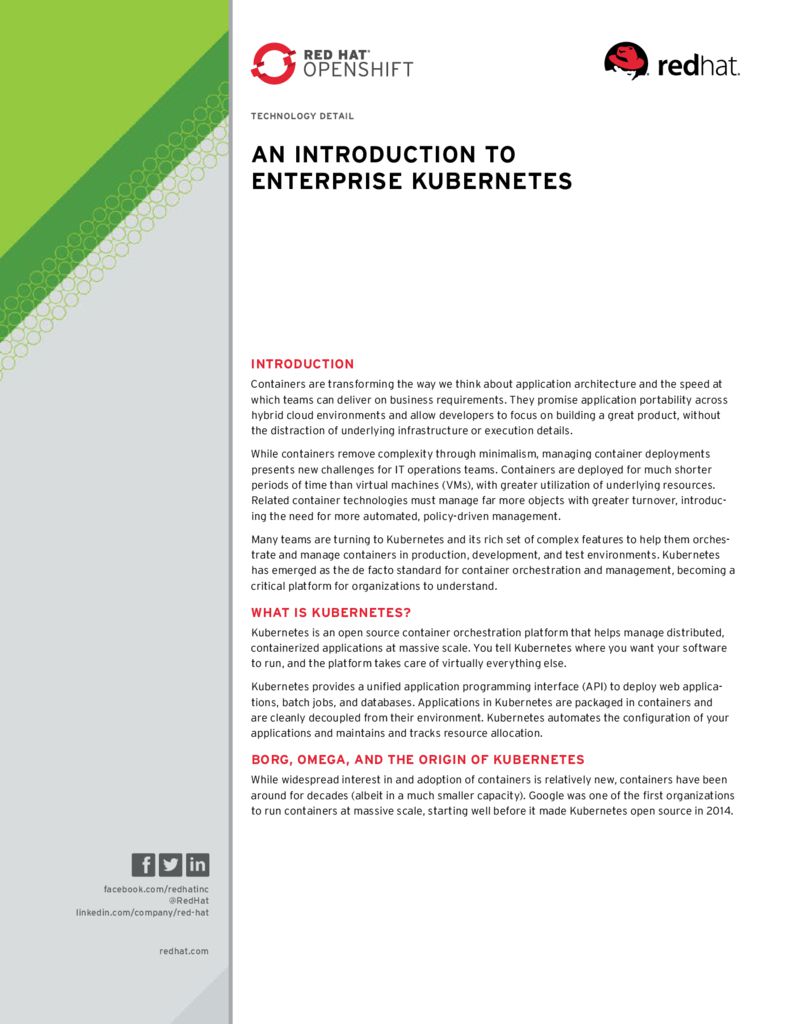Containers are transforming the way we think about application architecture and the speed at which teams can deliver on business requirements. They promise application portability across hybrid cloud environments and allow developers to focus on building a great product, without the distraction of underlying infrastructure or execution details.
While containers remove complexity through minimalism, managing container deployments presents new challenges for IT operations teams. Containers are deployed for much shorter periods of time than virtual machines (VMs), with greater utilization of underlying resources. Related container technologies must manage far more objects with greater turnover, introducing the need for more automated, policy-driven management.
Many teams are turning to Kubernetes and its rich set of complex features to help them orchestrate and manage containers in production, development, and test environments. Kubernetes has emerged as the de facto standard for container orchestration and management, becoming a critical platform for organizations to understand.
